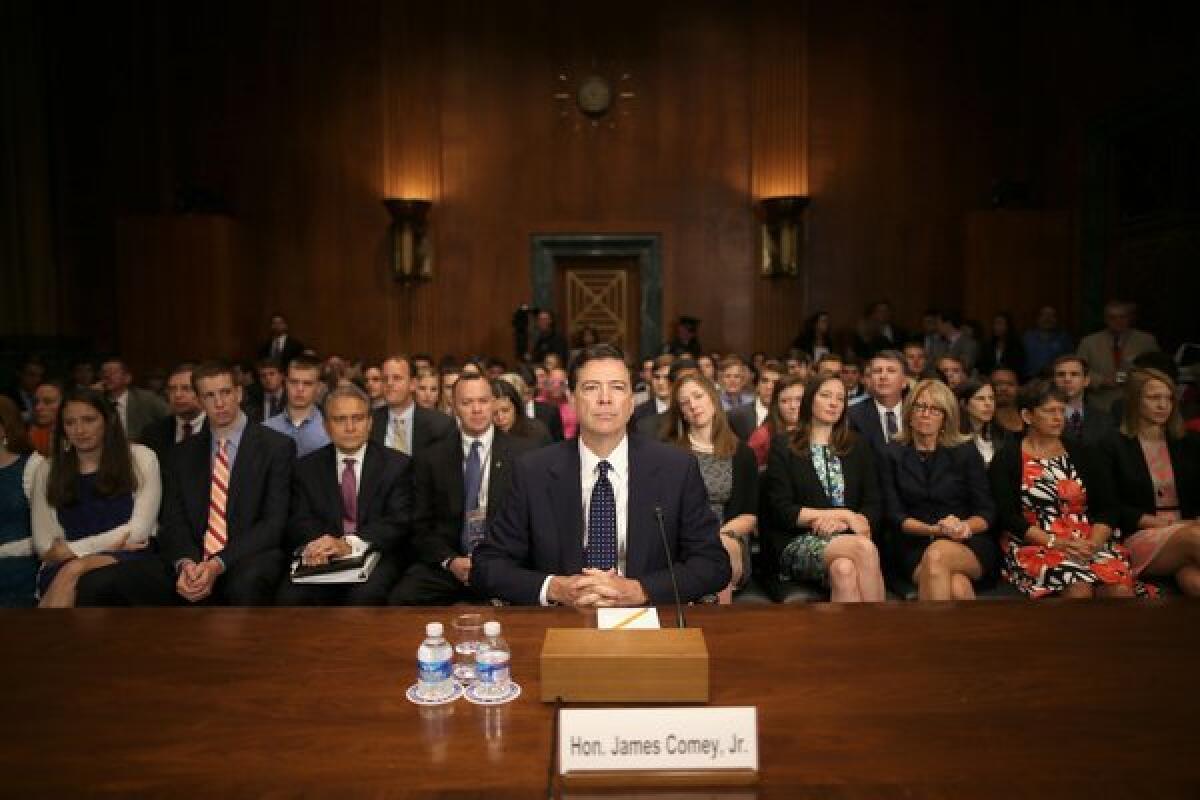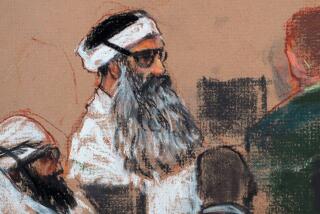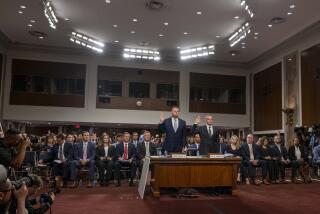Senators question FBI nominee Comey over enhanced interrogation

WASHINGTON -- Moments into a confirmation hearing Tuesday for James B. Comey Jr. as the seventh director of the FBI, Democratic and Republican leaders of the Senate Judiciary Committee, as well as a group of former FBI agents, said they have grave concerns about a decision he made nearly a decade ago to approve a legal memo that authorized waterboarding and other harsh interrogation techniques for terrorist captives.
The memo, said committee Chairman Patrick Leahy (D-Vt.), “led to the treatment of detainees that was contrary to our laws and our values, and this frankly made us less safe. We must never repeat those mistakes.”
Separately, five former FBI agents wrote the committee about their displeasure that Comey signed the May 2005 memo justifying 13 enhanced interrogation techniques and complained that he “vigorously defended” the George W. Bush administration’s decision to hold Jose Padilla, a U.S. citizen arrested in Chicago, indefinitely without trial for years in a military brig in South Carolina.
They urged Comey now to reject the provisions of the memo and to “make clear that it is not lawful or appropriate” to hold suspects without trial. “President Obama has banned torture, including waterboarding, and overturned the Office of Legal Counsel opinions authorizing it,” the agents told the committee.
PHOTOS: 2013’s memorable political moments
Comey responded to the criticism by saying he agrees waterboarding is illegal and tantamount to torture. He said when he first learned about waterboarding as deputy attorney general, “My reaction was this was torture. It’s still what I think.” And he noted that current FBI Director Robert S. Mueller III “made sure the FBI had nothing to do with that business.” He added, “And if I was FBI director, I would have nothing to do with that” either.
How then, Leahy asked him, does he “reconcile” his opinions today with the fact that he signed the memo? Comey said that in 2005 the Office of Legal Counsel insisted the techniques were legal and the CIA said they were effective. “The critical third question,” Comey said, “was should we be doing this and is it appropriate as Americans?” Comey said he went to his immediate supervisor, then-Atty. Gen. John Ashcroft, and asked him to force the White House not to implement it. “He took my notes with him to the White House and made the argument in full. But the principals [on the National Security Council] were on board. And so my arguments were rejected.” The memo that followed for his signature, he said, came from a compilation of several versions and he believed the final form was toned down. Though, he conceded,” I’m not sure that I did it right.”
Follow Politics Now on Twitter and Facebook
More to Read
Sign up for Essential California
The most important California stories and recommendations in your inbox every morning.
You may occasionally receive promotional content from the Los Angeles Times.










